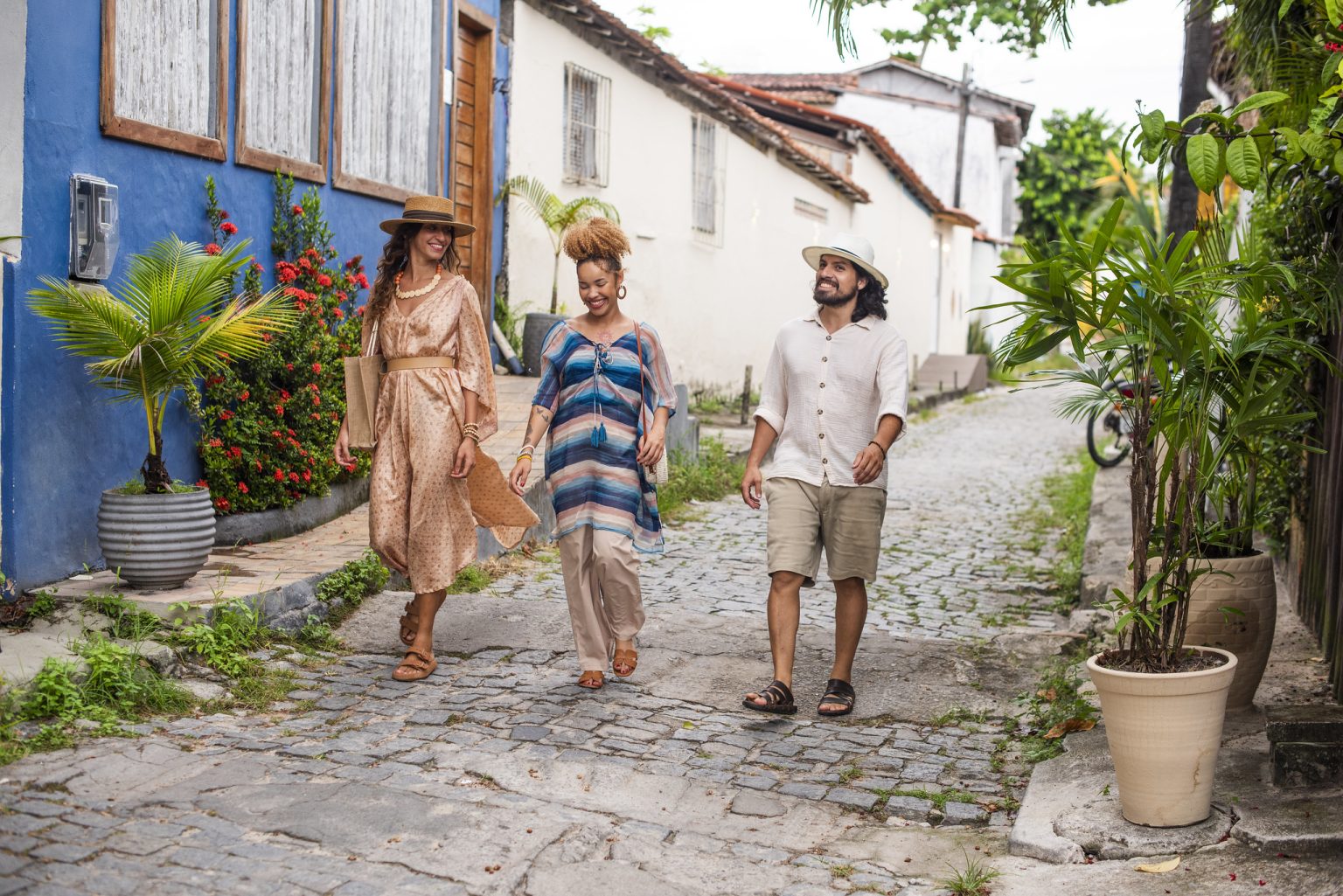In December alone, the country received more than 690,236 international visitors, a number 11.1% higher than that recorded in the last month of 2023
2024 was the best year in history for international tourism in Brazil. Proof of this is that the country reached the record mark of 6,657,377 foreign tourists in the year, an increase of 12.6% compared to 2023. The consolidated data was released by the Ministry of Tourism (MTur), Embratur and the Federal Police (PF). In December alone, 690,236 foreigners visited Brazil, a number 11.1% higher than that recorded in the same month of 2023 and the third best December in the historical series that began in 1995.
The president of Embratur, Marcelo Freixo, attributed the results to the success of the international promotion work carried out by the Agency over the last two years. “At Embratur, we were able to structure the promotion of Brazil abroad with innovative programs and projects that are being copied around the world. It is an efficient policy and the results are felt by the Brazilian people in every region of the country. This significant growth that we had in 2023 and 2024 will continue in the coming years, and Brazilian tourism is beginning to turn an important page from being a potential to becoming a reality, a leading segment of the economy in the generation of jobs and income, attracting international revenue, and a model of economic development that can be an ally of the environment”, he explained.
The Minister of Tourism, Celso Sabino, also celebrated the milestone. “It is a pleasure to be able to report such positive numbers for our country. This increase reflects our work to promote Brazil’s image abroad. Strategic advertising campaigns, structuring of destinations, participation in international fairs, our UN Tourism office in Rio de Janeiro and the strengthening of partnerships inside and outside the country have boosted our visibility, highlighting the diversity of experiences that Brazil has to offer, such as natural landscapes and our cultural heritage”, he commented.
The states of São Paulo (2,207,015), Rio de Janeiro (1,513,235), Paraná (894,536) and Rio Grande do Sul (879,412) emerged as the main entry points for these visitors in 2024. Proportionally, states such as Roraima (97%), Santa Catarina (71.7%), Bahia (52.8%) and Pará (47.4%), which will host COP 30 at the end of the year, recorded significant increases in the number of foreigners in their territories.
Argentina continues to lead the volume of international visitors arriving in Brazil. More than 1,953,548 Argentines landed in the country this year. The United States occupies the second position, having sent 696,512 tourists. Chileans come in close behind, with 651,776 arrivals to Brazilian destinations. Neighbouring countries Paraguay and Uruguay, together, accounted for more than 833,412 entries into the country.
Two out of every three international tourists arriving in Brazil come by plane. This mean of transport continues to be the main access for these visitors, while land transport accounts for 28.7% of the total.
Also according to Minister Celso Sabino, “the growth in the number of international visitors is one of the main goals of the National Tourism Plan (PNT) 2024-2027, which aims to consolidate Brazil as the main tourist destination in South America”. “Our expectation is to surpass the mark of 8.1 million foreign tourists per year, generating more than US$ 8.1 billion in revenue and further strengthening the national economy”, he said.
By November 2024, the amount spent by foreign tourists in the country totalled US$ 6.62 billion, the highest figure recorded in the first 11 months of the year since 1995. The number is 5.3% higher than that recorded in the same period in 2023 (US$ 6.29 billion) and even surpasses the amount for the same period in 2014 (US$ 6.30 billion), when the country hosted the World Cup.
Joint actions
The Ministry of Tourism, in partnership with Embratur, has been working on different fronts to attract international tourists. In December 2023, the first Office of the World Tourism Organization (UNWTO) in the Americas and the Caribbean was opened in Rio de Janeiro (RJ). Result of intense coordination by the Brazilian government, the headquarters will definitively place the country among the major global players in the sector, with the planning and adoption of actions in favour of the sustainable development of the entire region.
In addition, to reinforce the arrival of these tourists, the MTur, in partnership with Embratur, has once again made its presence felt at major and strategic international events to promote Brazilian destinations. The action involves the promotion of the “Brazil Brand”, an important initiative to rebuild the country’s image abroad — now duly committed to sustainability, diversity and inclusion in the tourism sector.
Brazil also launched the brand “Visit South America: one place, many worlds”. The strategy is a partnership between the Brazilian government, Argentina, Paraguay, Uruguay and Chile to promote and position these countries’ destinations internationally in an integrated manner, focusing on natural, gastronomic and hospitality attractions.
Future
For 2025, the Federal Government announced that the new regionalized notices of the International Tourism Acceleration Program (PATI), a program run by Embratur, with resources from the National Civil Aviation Fund (FNAC) arising from a partnership between the MTur and the Ministry of Ports and Airports (MPor), have a forecast of USD $10.6 million in investments to attract new flights on domestic routes.
The expectation is that at least 500,000 new seats will be offered in the period of one year. This number already impacts the record number of international flight seats for the 2024/2025 summer season: there will be 7.48 million, a 19% increase compared to the 2023/2024 summer season.
In addition, this year, Brazil will host important events, such as the UN Climate Conference, COP 30, which will be held in Belém, Pará, and the BRICS meeting in Brasília, which are expected to attract thousands of international visitors to the country.

